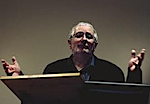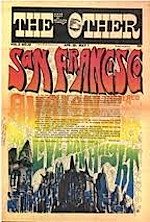THE OFTEN ABSURD THEATRICS of state authority are now familiar to us all. Saying you will do one thing while deliberately doing another is what passes for modern political genius, and using the power of the state to enforce the conceit is merely the banal denouement. Today, the state’s intellectual credibility extends only to the edge of the political proscenium. But once, the world was a stage.
By MICHAEL HOLLINGTON [Synthesis] – Were I to choose any one single episode in the life of a modern writer to fit the “truth is stranger than fiction” bill, it would be a central incident in the life of Dostoevsky that took place in December 1849. In April of that year he had been arrested and imprisoned as a member of the Petrashevsky circle supposedly conspiring to depose the Tsar and overthrow the Russian government. Following the subsequent investigations, and despite a report to the Tsar to the effect that, whilst the group certainly organised discussion of desirable changes to the existing structure of authority, there was little evidence of any coherent or concrete plan to effect such changes, Dostoevsky and fourteen others were condemned to death by firing squad on November 16, 1849. Continue reading “· Dostoevsky’s truth vs the Tsar’s fiction.” »
























